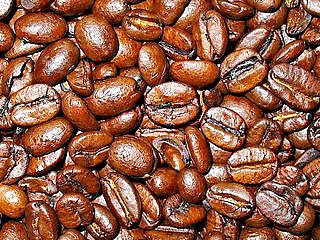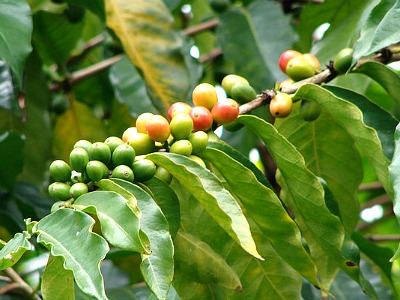 Arabica Coffee or Coffea arabica is one of the most commonly grown species of Coffea in the Philippines. A native to the southwestern highlands of Ethiopia, southeastern Sudan, Yemen and Kenya, hence the name Arabica – meaning “from Arabia”. It is also known as the “coffee shrub of Arabia” or “mountain coffee”. Coffea arabica is believed to be the first species of coffee to be cultivated, being grown in southwest Arabia for well over 1,000 years.
Arabica Coffee or Coffea arabica is one of the most commonly grown species of Coffea in the Philippines. A native to the southwestern highlands of Ethiopia, southeastern Sudan, Yemen and Kenya, hence the name Arabica – meaning “from Arabia”. It is also known as the “coffee shrub of Arabia” or “mountain coffee”. Coffea arabica is believed to be the first species of coffee to be cultivated, being grown in southwest Arabia for well over 1,000 years.
Coffea arabica is a tropical plant which requires very specific environmental conditions for commercial cultivation. Temperature, elevation, rainfall, sunlight, soils and the pattern of rainy and dry periods are all important and do influence growth and development of the coffee plant. Arabica is a higher value coffee grown in cooler, elevated areas at 1000m (3300 feet) or more above sea level. Normally, higher altitudes produce better beans, not only because they have the effect of increasing the acidity of the bean and thereby improving flavor, but also because the cold nights mean that trees develop more slowly, which allows the beans to develop a fuller flavor.
 The importance of coffee in the Philippines cannot be overstated. While the domestic demand currently stands at 65,000 metric tons, domestic production is forecast at only 30,000 metric tons in 2009. The shortfall of 35,000 metric tons has to be imported. The production of Arabica accounts for only 5-10% of the county’s total coffee, but it is well worth looking out for it. Arabica as a high-value crop is known to fetch higher prices and to provide an important source of income and employment for many upland farmers and their families in the Cordillera provinces and Mindanao. The extension materials on Arabic coffee cultivation are invery limited supply; especially in the more remote areas where opportunities for coffee are often greatest. Thus, these coffee production guidelines aim at providing farmers with basic knowledge on coffee management practices for improving the yield and quality of coffee beans. Topics such as factors influencing coffee production, cultural requirements, harvest and post-harvest management are covered. The information may be used by farmers, extension officers, and those interested in coffee.
The importance of coffee in the Philippines cannot be overstated. While the domestic demand currently stands at 65,000 metric tons, domestic production is forecast at only 30,000 metric tons in 2009. The shortfall of 35,000 metric tons has to be imported. The production of Arabica accounts for only 5-10% of the county’s total coffee, but it is well worth looking out for it. Arabica as a high-value crop is known to fetch higher prices and to provide an important source of income and employment for many upland farmers and their families in the Cordillera provinces and Mindanao. The extension materials on Arabic coffee cultivation are invery limited supply; especially in the more remote areas where opportunities for coffee are often greatest. Thus, these coffee production guidelines aim at providing farmers with basic knowledge on coffee management practices for improving the yield and quality of coffee beans. Topics such as factors influencing coffee production, cultural requirements, harvest and post-harvest management are covered. The information may be used by farmers, extension officers, and those interested in coffee.
Contact Information:
Bote Central, Inc.
#21 Graceful corner Menchie Sts.,
BF Almanza, Las Piñas City, Philippines
Phone: (+632) 836-0216, (+632) 801-2682
Fax: (+632) 805-0713
Email: [email protected]
Source: arengga.com, en.wikipedia.org; Photos: en.wikipedia.org